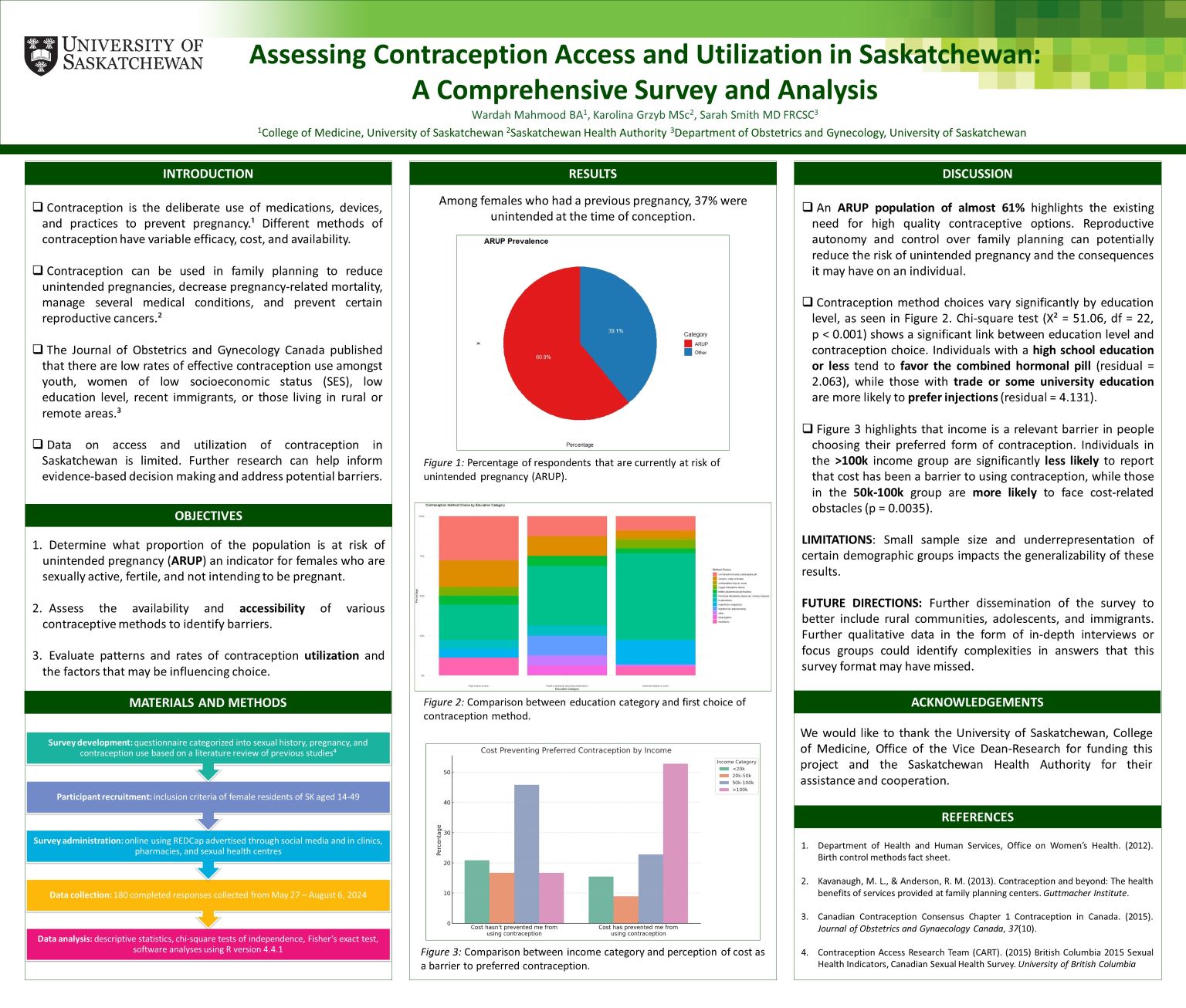
Assessing Contraception Access and Utilization Across Saskatchewan: A Comprehensive Survey and Analysis
Wardah Mahmood
Contraception, including medications, devices, and methods, can help prevent unintended pregnancies, manage medical conditions, and reduce reproductive cancers. However, there is limited data on contraception access and utilization in Saskatchewan, highlighting a need for more research to inform patient-centered policies and improve health outcomes. This study used an online survey through REDCap to gather data on sexual history, pregnancy, and contraception use among female residents of Saskatchewan aged 14-49. A total of 180 completed responses were obtained from May 27 to August 6, 2024. Data analysis included descriptive statistics, chi-square tests of independence, Fisher’s exact test, and software analyses using R version 4.4.1. Findings indicated that participants who had greater education levels were more likely to choose a more effective form of contraception, while patients with lower income were more likely to view cost as a barrier to accessing their preferred form of contraception. These findings highlight the potential influence of education and income on contraceptive access and choice. Future research should aim to increase sample size and demographic diversity as well as include more qualitative data in the form of in-depth interviews or focus groups. This research is critical to better understand sexual health disparities and improve reproductive autonomy in Saskatchewan.
